Ecological Overshoot: Humanity's Countdown to Extinction
Of the 8 million species on Earth, modern humans are the only ones who take without giving back—leaving behind nothing but a growing mountain of toxic waste.
We weren’t always the bad guys. We’ve only been around for 300,000 years or so. But for the first 96% of that time, we lived like any other animal, walking around, looking for food (energy) and water, surviving off what we could find, taking only what nature provided, without altering the world around us. We were just another part of the natural cycle, not shaping the planet, but simply existing within it. Many things happened, but as a species nothing much changed really, and our impact on the planet was insignificant.
Then came agriculture and we unknowingly set a trap for ourselves by basing our existence on destructive practices of deforestation and agriculture. It was a fundamental shift in how we lived. Instead of surviving off what nature provided, we began transforming it to serve us; clearing forests for farmland, fuel (biomass) and materials, depleting the land of its nutrients. We evolved into a different species.
Today, many people think of agriculture as some kind of natural thing, but it’s not. Plants are natural, but agriculture, especially monoculture, is rooted in the destruction of ecosystems. The same applies to forestry, where single-species plantations are created for different products, at the expense of biodiversity and soil health.
Over the past 200 years, fueled by the industrial revolution, our population exploded at the same time as our per capita consumption skyrocketed. This is a period that most people today consider “normal”, often calling it progress. From a historical perspective, there is nothing normal about this period, and from an ecological perspective it’s nowhere near sustainable.
The 12,000 year chart below clearly illustrates that our population has indeed exploded in an unnatural way.
For millennia, we have misunderstood our relationship with nature, and are now facing multiple ecological problems, like climate change, biodiversity loss, resource depletion, and their cascading effects, all of which have been supercharged by overpopulation.
If we condensed our 300,000-year history into 24 hours, and observed it from a distance, it would look something like this:
The first 23 hours – Nothing unnatural happens. The planet just shifts between ice ages and warmer periods. Boring.
23:03 – Agricultural Revolution – After 23 hours of nothing, forest cover begins to shrink. Grasslands and wetlands are changing. Nothing too dramatic, but something new is going on.
23:57:36 - Scientific Revolution and Age of Discovery – 54 minutes later, most of the primary forest cover is now gone, and vast stretches of land have been transformed. Surely this is some type of infection?
23:59:03 – Industrial Revolution – Only 2 minutes later, strange, unnatural structures begin to appear, accompanied by light and smoke. Something very unnatural is going on.
23:59:59 - Today – Wow! In just a few seconds the ice caps nearly vanish, forests are ablaze, lakes have dried up or turned toxic, and the entire planet is lit up like a Christmas tree. All of that, in just a flash.
If you read my article on climate change and still held onto some hope that this civilization might pull through, I’m afraid I’ve got more bad news to add to the growing list of terrible news. Let me introduce you to the all-encompassing reality of ecological overshoot.
Ecological overshoot is when a population exceeds the carrying capacity of its environment or the sustainable limits of its resources, leading to die-off.
Ecological overshoot also encompasses waste production, and unlike other species and previous civilizations that went into overshoot, we’ve added some new ingredients to the mix. Fossil fuel emissions, microplastics, synthetic hormones, industrial chemicals, agricultural chemicals, e-waste, nuclear waste and even space debris. These things stick around for centuries or millennia and disrupt the planet's ecosystems in ways we don’t even fully understand.
Can’t we just grow until we reach the limit and then stop? The time to stop was centuries ago, we’ve been in overshoot for a long time.
Even if climate change didn’t exist, we’ve set ourselves up for a spectacular collapse, and we’re still living as if radical change isn’t necessary, hoping for some kind of miracle and living in denial of reality.
Ecological Principles
To understand ecological overshoot, we need to understand the basics of ecology, especially the ecological cycle and principles that keep the natural balance in check and underpins our very existence.
The ecological cycle in very simple terms:
Producers (plants and algae) use sunlight to produce energy through photosynthesis, forming the base of the food web.
Consumers (animals) depend on plants (herbivores) or other animals (carnivores) for energy.
Decomposers (fungi and bacteria) break down dead organisms (waste) and recycle nutrients back into the soil, supporting new plant growth.
We are a product of nature. We are animals, biological creatures made up of organic materials, belonging to the group of consumers. Meaning that we also depend on the producers (plants and algae) and decomposers (fungi and bacteria) for the cycle to function. Without all components, the system falls apart.
In a world where every other species plays a role in maintaining the balance of life, through pollination, decomposition, contributing to food webs, modern humans are the only ones that take without giving anything back. Every other species contributes in some way by enriching the soil, maintaining plant life, or supporting biodiversity. We do none of this. We do the opposite.
Ecological principles that keep populations in check:
Predator & Prey Relationships - Predators keep prey populations in check by hunting them, preventing them from growing too large and over-consuming resources. For example, wolves hunt deer, keeping the deer population in check and preventing them from overgrazing vegetation. In turn, the wolves are kept in check by natural forces and resource availability.
Competition - All species compete for food (energy), water, and shelter. This competition naturally limits population growth of species, even if they’re not in a predator-prey relationship. For example, squirrels and rabbits compete for the same food (plants and seeds), but they don’t kill each other.
Disease and Parasites - Diseases and parasites are nature’s way to limit populations. When animals live in large groups, it’s easier for illnesses or parasites to spread, keeping numbers in check.
Resource Limits - Resources, mainly food and water, limit how big a population can get. If a population grows too fast and consumes more resources than the environment can provide sustainably, whether it’s food, water, or shelter, its population will eventually decline. Every year there’s only a certain amount of food produced by nature.
Carrying Capacity - Every environment has a carrying capacity, a limit to how many individuals it can support. If a species goes past that limit, for example if predators die-off or competition drops, the species will keep reproducing, going into overshoot while draining resources. Eventually, all the food runs out, and the population crashes, sometimes hard, until it reaches a new equilibrium.
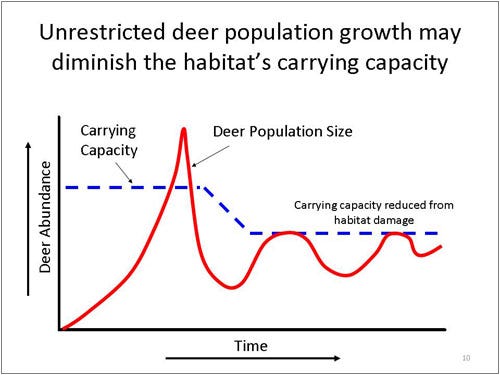
Breaking Ecological Principles
Let’s consider how our species has interacted with ecological principles over time and how that set the stage for our numbers to explode.
Predator & Prey Relationships - Global Apex Predator
Humans weren't exactly built to be apex predators, but there's no denying that we've dominated as the global apex predator for tens of thousands of years. When we mastered fire and technology for toolmaking, we became unstoppable as long as we stuck together.
Spears, and other tools, gave us the ability to hunt from a distance without relying on our teeth, claws, or brute strength like other predators, catapulting us to the top of the food chain.
Over the past 60,000 years, we spread across the planet, wiping out a lot of megafauna (not all of it), using biomass for cooking and heating, and pushing ecosystems into new balances. But this wasn’t a big deal when we were mobile, sparsely populated hunter-gatherers, we could just move around, giving degraded ecosystems time to recover. When those same behaviors scale to an immobile civilization with unchecked growth, it becomes a very big deal with severe consequences.
As the global apex predator with no species preying on us, our population has been able to grow unchecked, free from the natural controls that other species face.
Eliminate the Competition
There is not much competition for resources at this point. We’ve eliminated our competition mainly through land-use change with the help of technology. By clearing land for agriculture, urban development, and resource extraction, we have completely tipped the scales in our favor, altering access to food, water, and shelter, allowing our population to grow at the expense of others.
We’ve become so dominant that we are officially in the midst of a mass extinction event, it even has a Wikipedia page: Holocene Extinction.
Eradicating Disease and Parasites
For thousands of years, lack of sanitation, disease, and parasites kept our population in check. But with modern medicine, vaccines, and improved sanitation, we've more or less removed these natural limits, setting ourselves up for another progress trap. It may be uncomfortable to acknowledge, but it doesn't make it any less true.
Since removing these checks, our population surged from 1 billion to nearly 8.2 billion in just 200 years.
Ignoring Resource Limits
Like all animals, humans have generally ignored the limits of natural resources, simply because there was no need to consider them. Before agriculture, we ate a wide variety of foods and adapted to what was available, but we were still bound by natural cycles.
We’ve been converting resources to fuel our own population growth, living off the Earth’s "capital" rather than its "interest”. We’re still here, but we’re living on borrowed time.
When it comes to finite resources like fossil fuels, it’s like a group of addicts stumbling on a huge stash of cocaine and binging endlessly. Now the stash is almost gone, and they’re scrambling to keep the party going by cooking up amphetamines (green energy). But this approach isn’t sustainable in the long run. What they really need is rehab.
Ecological Overshoot & Collapse
As our global population grew and early civilizations rose, a clear pattern of unsustainable growth emerged. Because we used up resources faster than our environment could recover, the land eventually became much less productive (less food), forcing us to clear new lands for food production, just to sustain our population. This need for growth triggered conflicts and wars over land and resources. A cycle of destruction that continues today.
The Rapa Nui (Easter Island) Civilization (c. 1200-1600 AD)
The Rapa Nui were a people living on Easter Island, a small, isolated spot in the Pacific, about 3,500 km west of Chile the size of Chicago, making them the perfect case study for ecological overshoot.
At their peak, their population reached about 15,000 people, but by the 18th century, their population had dropped to just 2,000 and their civilization had completely collapsed.
Their civilization collapsed because of overshoot. They cleared their forests for farming and fuel (biomass for cooking and heating) to keep up with their growing population. More people meant more food and resources were needed, which pushed everything beyond its limits, leading to a quick collapse and the unraveling of their society.
The Rapa Nui didn’t collapse because they lacked technology. They collapsed because of their technology use. It was their entire way of life. They too had built their existence on deforestation and agriculture, unsustainable practices in the long-term, especially when combined with unchecked population growth and a limited carrying capacity.
Modern humans have a fundamental misunderstanding of their relationship with nature. To be fair, we haven’t evolved to fully grasp it. No animal has. But we are the global apex predators now, and we have the capacity to understand it. Some indigenous cultures have understood it.
Due to this misunderstanding of our relationship with nature, civilizations have always pushed their environments beyond what they could handle. Human-centric religions certainly haven’t helped, placing humans above and separate from nature. Fools.
The more people you have, the more food, water and materials are needed. Even a simple lifestyle requires food, water and shelter. It really is that simple.
Is civilization inherently unsustainable? Depends how you define civilization. The way we’ve been doing it is 100% for sure unsustainable, and unchecked population growth is always unsustainable. As populations grow, they over-farm, deforest, and deplete resources, causing soil erosion, poor crops, and resource shortages, which ultimately destabilize societies and lead to collapse. It's the same cycle, over and over. Technology can buy time and stretch the limits, but not solve the root cause.
This infographic shows how long prior civilizations lasted, the average being 336 years.
If you are interested in reading more about the rise and fall of civilizations, I recommend the following two books:
Immoderate Greatness: Why Civilizations Fail - William Ophuls
The Collapse of Complex Societies - Joseph Tainter
The Great Acceleration & Global Ecological Overshoot
The Great Acceleration was a massive shift in the pace of human activity and its impact on the planet. Things really took off in the 1950’s, following World War 2 and the rise of globalization, bringing an usually long period of peace, but at a cost. And now that peace seems to be coming to an end as well.
We celebrate this as progress:
Here is the other side of the coin:
How ignorant and delusional are we? The evidence is available for everyone to see, and has been for decades.
The great acceleration was fueled by technological advancements combined with abundant and cheap energy from fossil fuels, leading to several new overshoot symptoms, one of which is climate change.
If you’ve made it this far, you should now understand why this civilization is unsustainable. Simply switching the energy source that powers this civilization does not solve the fundamental problem of overshoot and prevent collapse. We have already overshot the carrying capacity a long time ago, the system will self-correct no matter what we do. We’re just rearranging the deck chairs on the Titanic and arguing over who gets to be in first-class and who should be the captain.
Because our civilization is global, and not confined to a remote island in the Pacific, the consequences of overshoot are going to be global this time. Like a parasite, we’re slowly consuming our host. We extract resources, consume them at an unsustainable rate, and leave behind non-organic waste, on a global scale.
We’re now facing the collapse of most planetary boundaries.
Trapped in the Machine
Nobody planned for this and no one is actually in charge. We were all born into this system and we’re stuck in it. We didn’t choose this. This is just where our civilization happens to be right now. No matter how much we might want to step away, the way the world and economy are set up right now, makes it impossible to avoid participating in it.
Today, we’re still busy and distracted working to survive. We work to make money so we can buy food, pay rent, and keep everything running. For some of us, it means pretending to care about some bullshit job, pointless meetings, soul-crushing commutes, and hours staring at screens under artificial light. For billions of people, it means being stuck in brutal and repetitive service, factory and agricultural work just to scrape by.
We’re not really working to sustain ourselves anymore, we’re working to keep a profit-driven, consumer-obsessed system alive.
Our fossil-food dependent food system is designed to maximize addiction and profit, making us fat and unhealthy. Pharmaceutical companies capitalize on this by selling drugs like Ozempic and other treatments that only address the symptoms. The car industry created a reliance on personal vehicles through urban sprawl, locking us into fossil fuel dependency. Social media platforms optimize for engagement using algorithms that exploit our psychological weaknesses, polarizing our societies and decreasing our attention spans.
The whole thing is so absurd, it’s surreal. Why anyone would want to save this economy and civilization, I don’t know.
So how many humans can Earth actually support?
The truth is, we don’t really know the carrying capacity of Earth, and it keeps changing. It depends on things like how we live and how much we consume.
But here’s what we know for sure:
As hunter-gatherers, Earth could sustain around 5 to 15 million humans indefinitely. Why so few? Because a hunter-gatherer lifestyle requires anywhere between 10 to 50 square kilometers per person to live sustainably off the land.
With our current modern lifestyles, the planet can NOT sustain 8 billion people indefinitely. The signs of this are everywhere.
So maybe it’s somewhere in the middle? Yes, probably a few hundred million, or maybe even a billion, but with drastically lower energy use, a completely different food system based on permaculture, and much lower levels of consumption. Whatever the answer is, we have to remember we’re not the only one’s here, and we depend on nature and other species for food, water, air, and all the ecosystem services that keep us alive.
Honestly, I don’t think that’s likely to happen, because climate change is probably going to wipe us out by destroying our food system. But if it does happen, and I hope it does, getting from here to there won’t be a smooth process.
Facing the Collapse
In my opinion, the real question isn’t if we will collapse, an unsustainable system always fails eventually, it’s how we will collapse, and what comes after. We are facing several crises converging simultaneously, that intertwine and impact each other. We’re already feeling the effects, and it’s impossible to know how it will play out.
Climate change from greenhouse gases and deforestation
Biosphere collapse from deforestation, pollution, plastics, and other chemicals
Resource scarcity leading to war and conflict, with a possibility of nuclear winter
Political, economic and societal collapse from all of the above
While we wait for a miracle, an ecological awakening and the biggest revolution in modern history, here are a few things we can do as individuals to reduce the damage:
Reduce consumption by a lot (plastics, electronics, clothing, paper)
Eat local and seasonal, and reduce food waste
Consume less meat, especially beef
Reduce travel
If you have a yard or lawn, rewild it
Educate other people – this is key
I think those are some pretty simple things anyone can do. It probably won’t save the planet, but we might as well try, and live in a way that feels right.
Over 10 million hectares of forest are destroyed every year. That’s the size of Virginia, gone. Over 80% of the world’s original forests have been cut down. Species that once thrived now struggle to survive in shrinking, fragmented habitats.
The rivers and oceans are poisoned. Industrial waste is dumped untreated into the water, turning streams into toxic rivers.
Runoff from the fertilizers we use to grow food floods into waterways, carrying harmful chemicals that kill aquatic life and disrupt entire ecosystems. These pollutants create dead zones, where oxygen is depleted and marine life can no longer survive. Our waterways, once vital arteries for life, are now filled with toxins, suffocating the very creatures that depend on them.
Over 170 trillion pieces of plastic pollute the oceans, choking marine life, with millions of tons added each year. On land, microplastics contaminate soil and water, infiltrating our food chain and killing animals.
The air is far from clean. Smog and toxins choke the sky, affecting everything from insects to birds. Forests are suffocating, unable to breathe in the polluted air, while wildfires, fueled by the very climate crisis we created, consume them, turning ecosystems into ash.
Nights are no longer dark. Light pollution floods the sky, confusing animals that rely on the dark for survival. Migratory birds get lost, their navigation thrown off by city lights. Sea turtles, once guided by the moon, are now heading inland because of artificial lights on the beach, often leading them to their deaths.
Insects are drawn to artificial lights, disrupting their natural behaviors. Moth circle streetlights to the point of exhaustion, unable to find food or mates. This cascade of disruption is taking a heavy toll on ecosystems that depend on darkness to function properly.
The noise never stops. The hum of traffic, airplanes, and industry drowns out the natural world. Animals can’t hear each other. Birds miss their mating calls. Marine mammals can’t use sonar to navigate through shipping lanes. The constant noise disrupts everything.
Nature is unraveling. Food webs are collapsing, breaking apart the intricate balance that has kept life going for millions of years. Ecosystems are fraying, and the chaos we’ve created is going to push most species, ours included, to extinction.




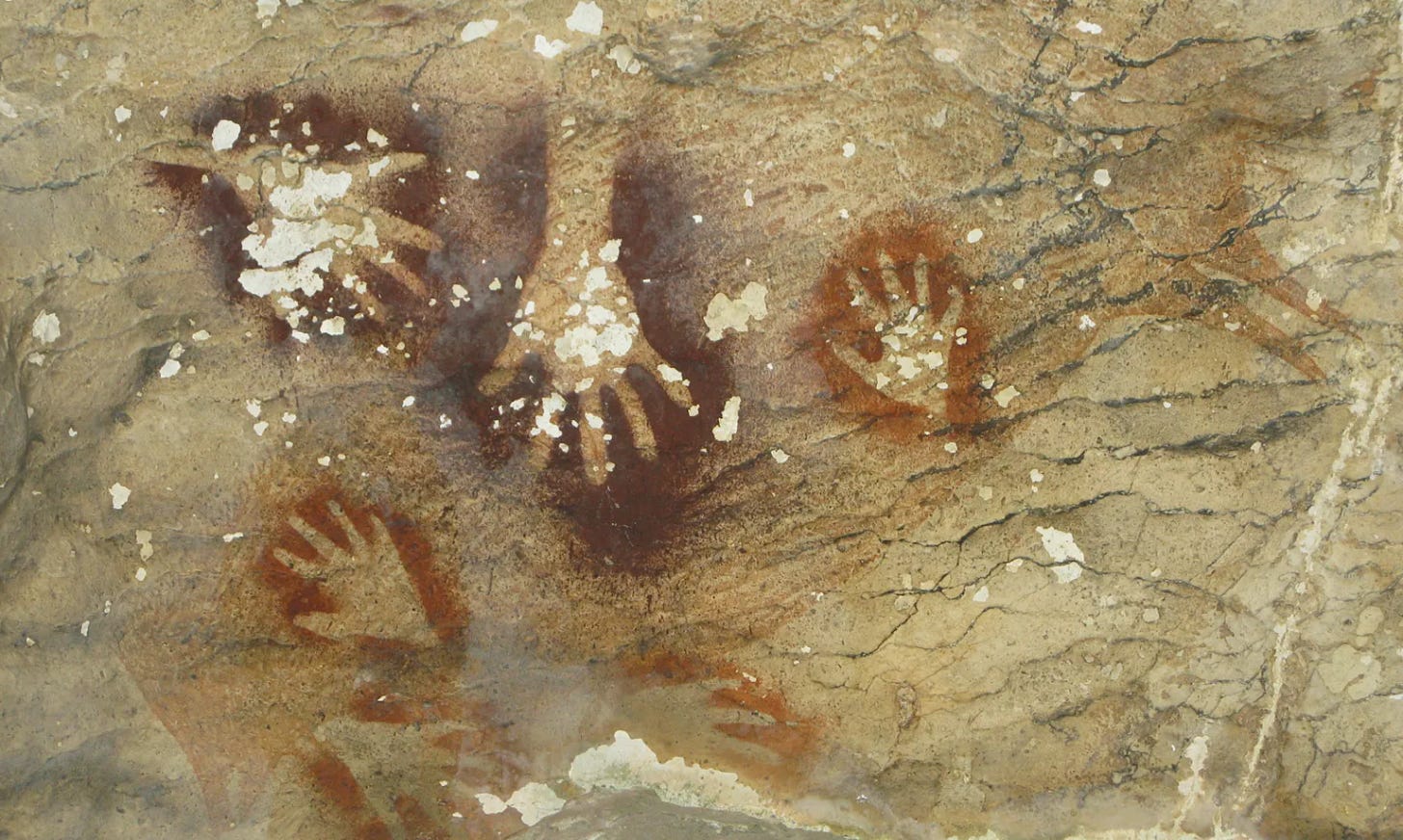


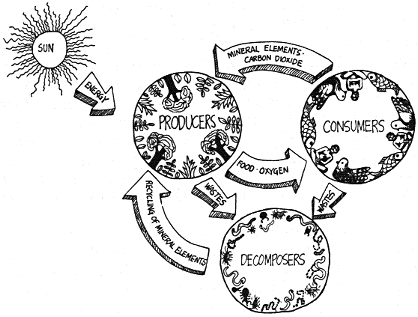

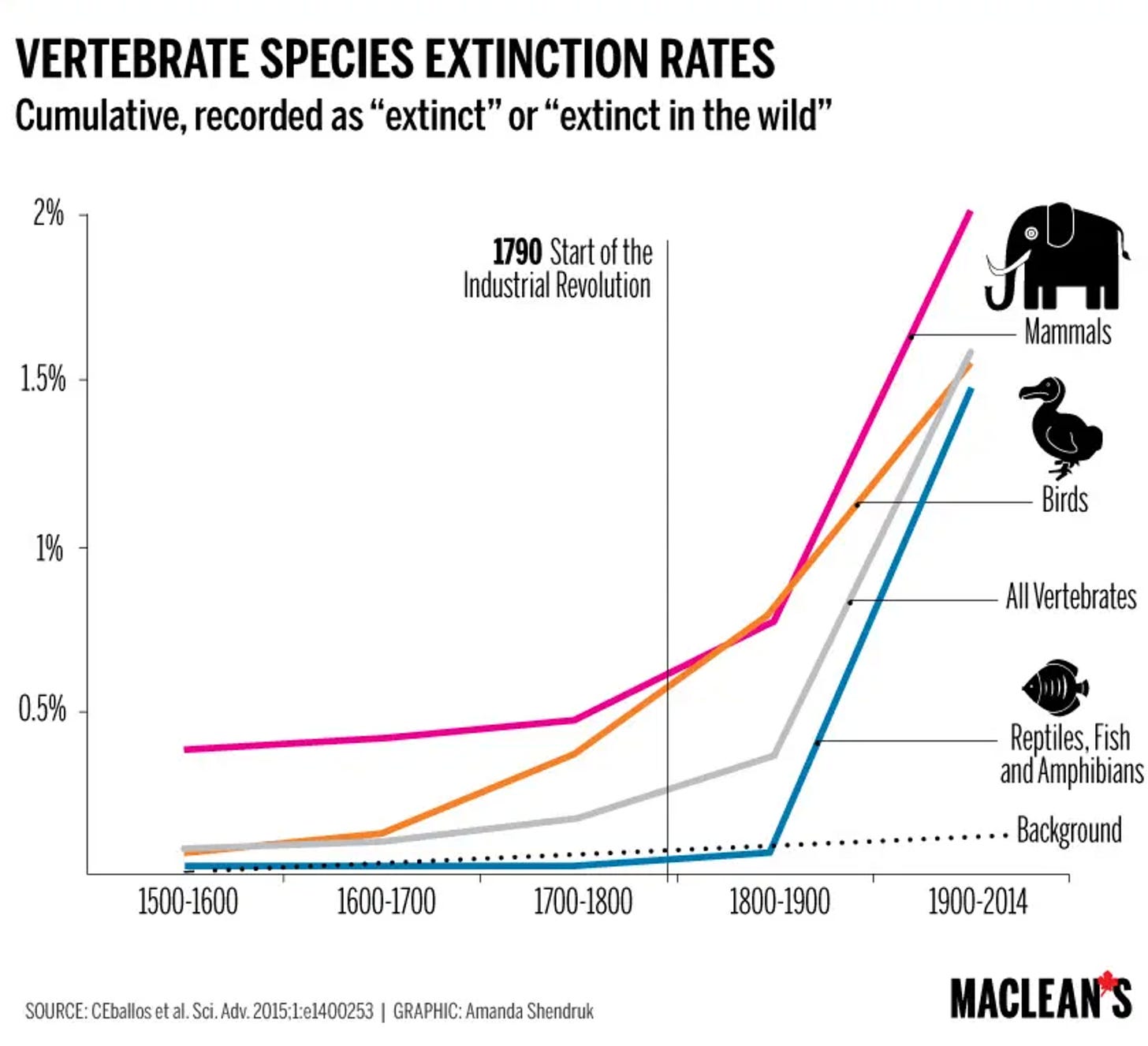

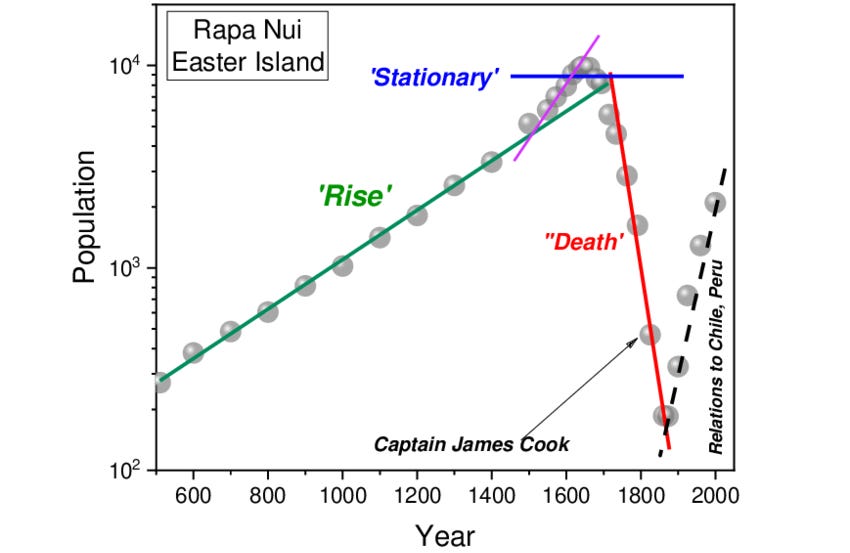

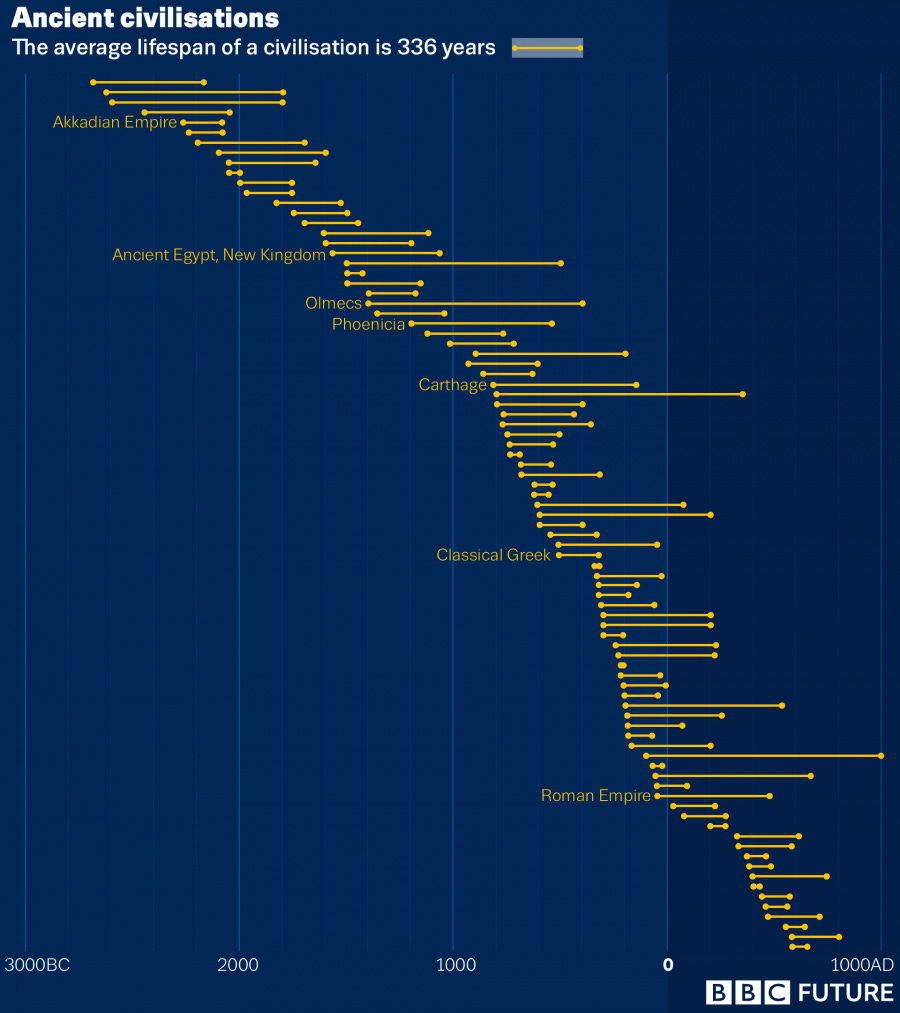





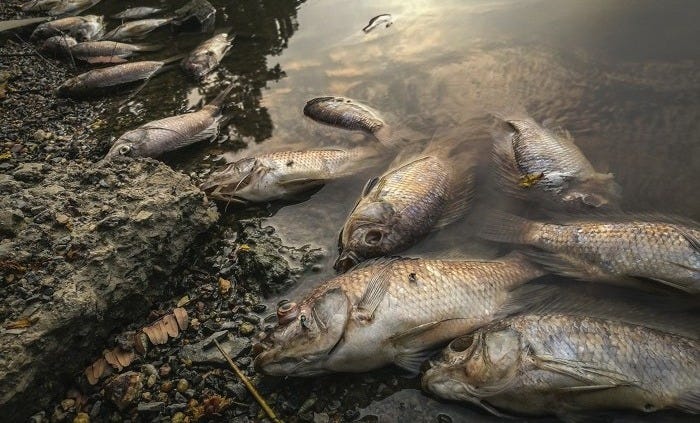
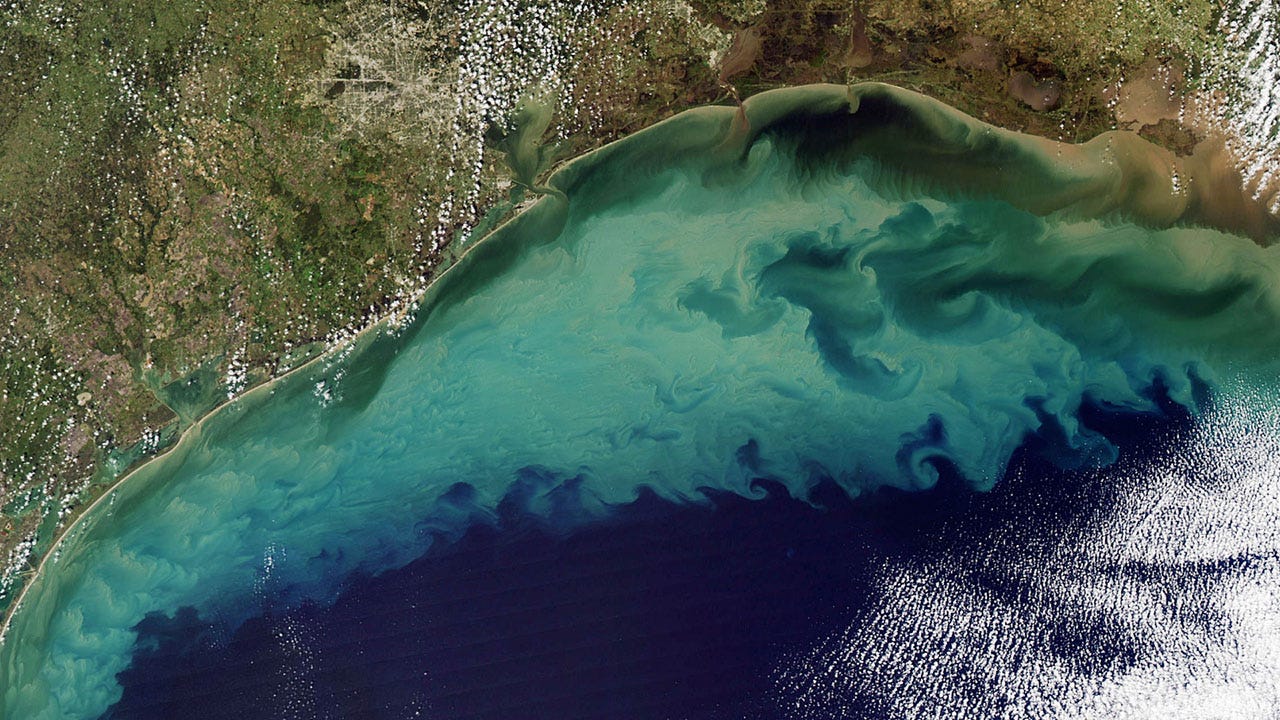


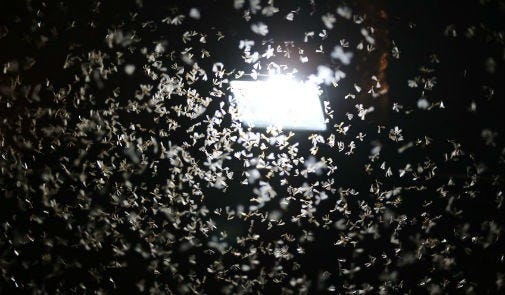
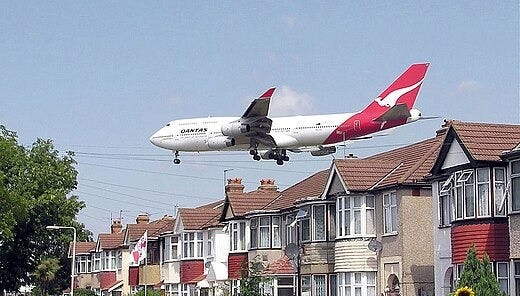
Hard reading. But thanks for the brutal honesty.
That a hell of a lot of work and nicely done.
Massive decrease in infant mortality a huge factor in overpopulation that often gets overlooked. I suppose it can be filed under medical, but I feel it deserves it own mention.
.
*Mortality in the past: every second child died*
.
'The chances that a newborn survives childhood have increased from 50% to 96% globally. How do we know about the mortality of children in the past? And what can we learn from it for our future?'
https://ourworldindata.org/child-mortality-in-the-past
.
French sociologist Emmanuel Todd predicted the fall of the USSR and said their high infant mortality rate was one of the big factors. He's recently published a new book where he predicts the fall of the US empire and the west. I do not know if he names infant mortality as a major factor. It has increased in the US, but only a little. American collapse won't save the humans, but it's great fun to watch the mighty killer empire fall.
*Emmanuel Todd: “We are witnessing the final fall of the West”*
"In his latest book, the historian and anthropologist diagnoses The Defeat of the West. In The Final Fall, published in 1976, the author correctly predicted the collapse of the Soviet Union. We have to hope that this time “prophet” Todd is wrong."
https://ednews.net/en/news/world/641606-emmanuel-todd-are-witnessing-the